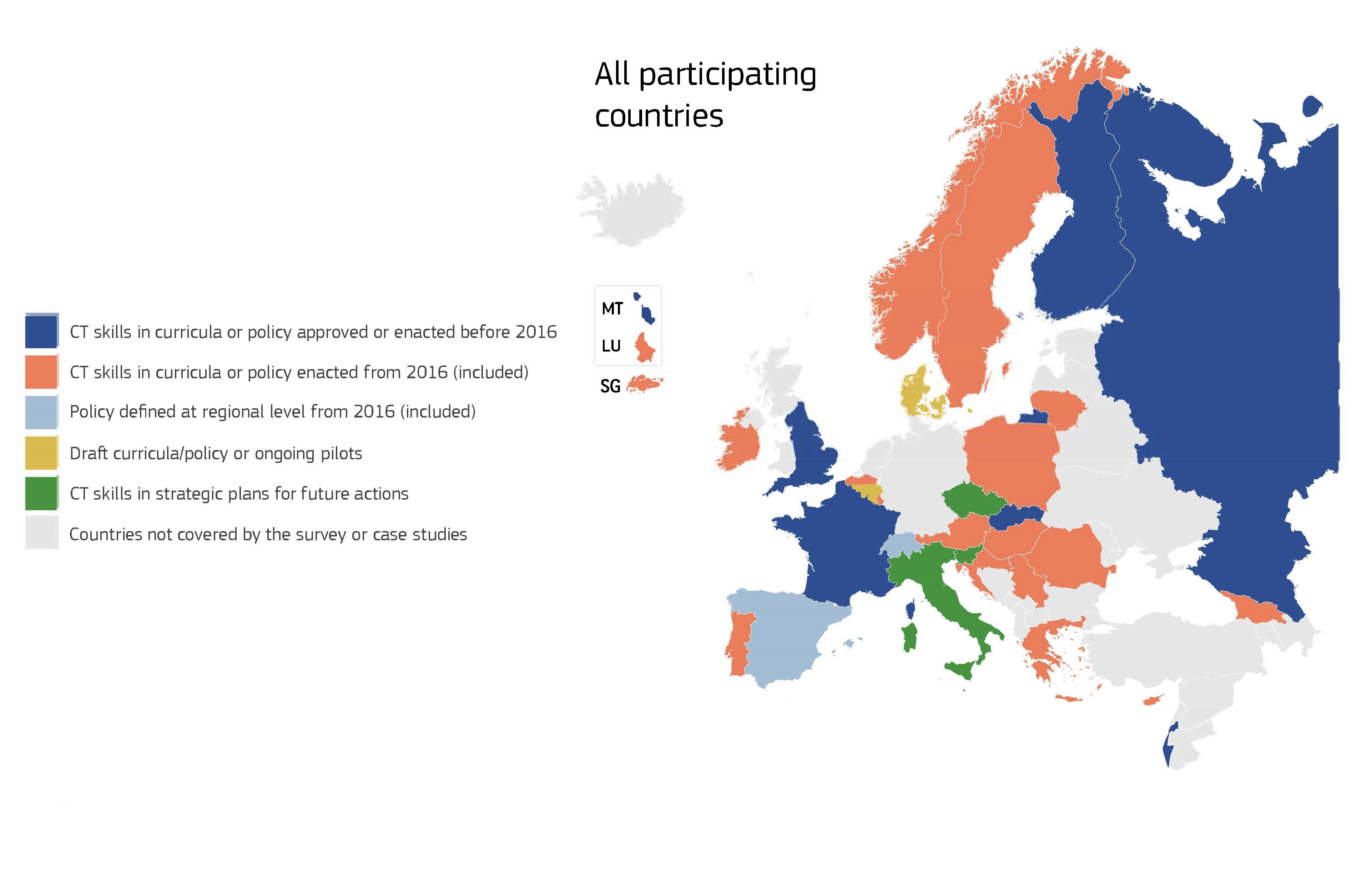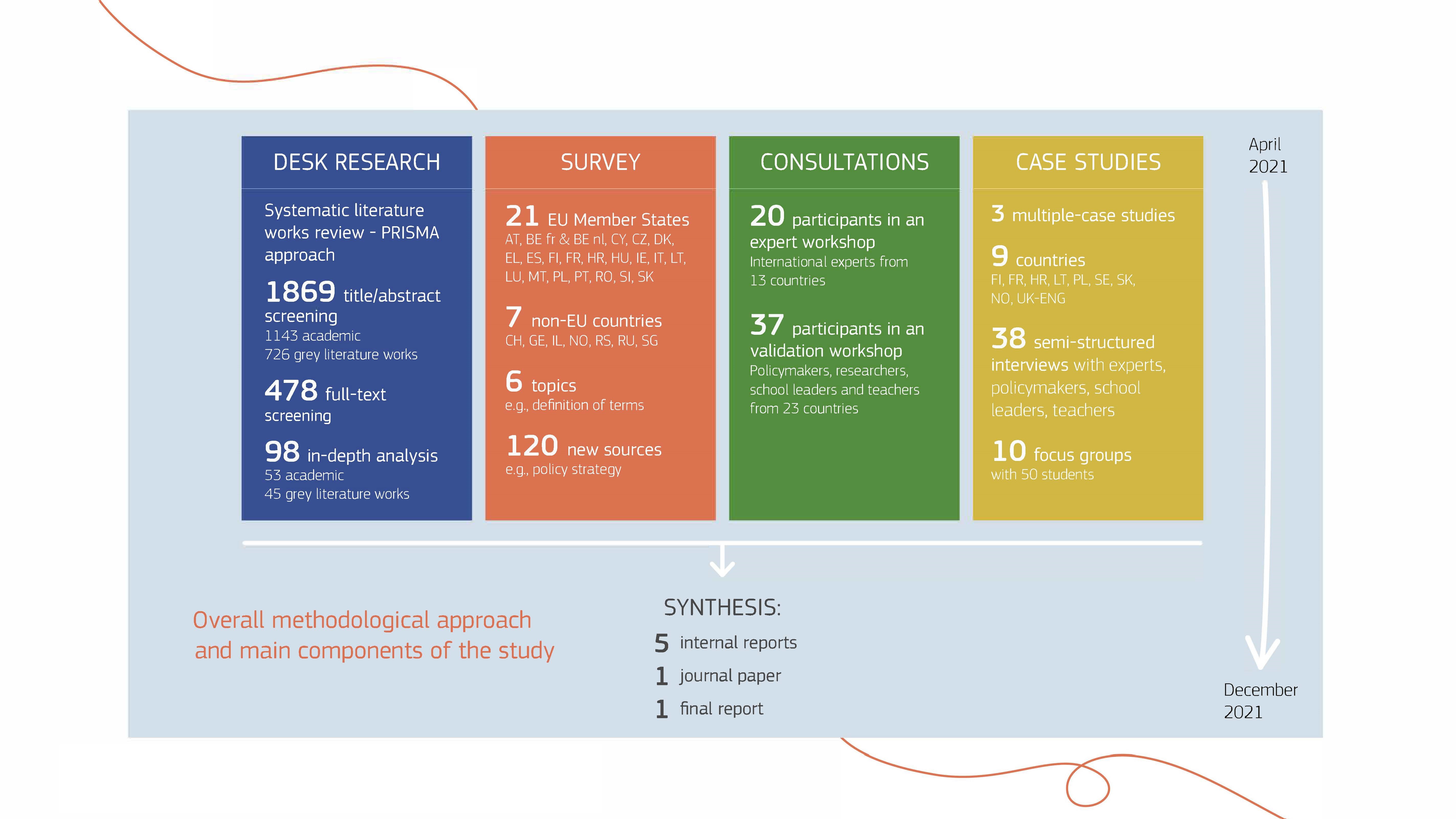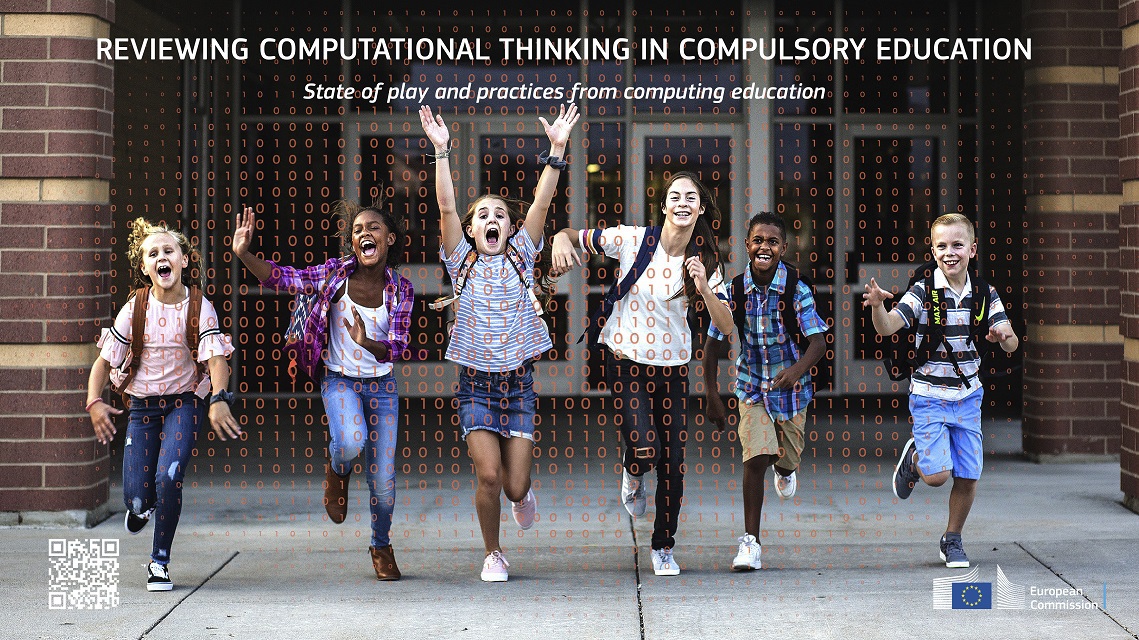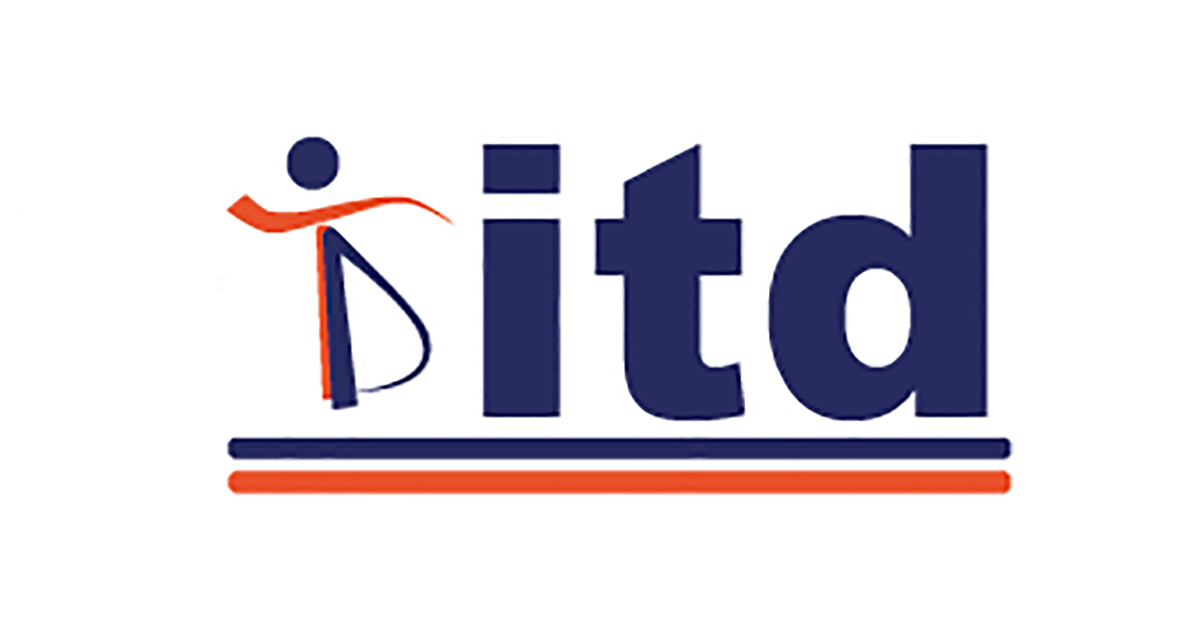Reviewing Computational Thinking in Compulsory Education
In recent years, Computational Thinking has emerged as a fundamental skill for everyone, not just for computer scientists. More and more countries are promoting the development of Computational Thinking skills by introducing Computer Science into school curricula. However, questions remain regarding its implementation, specifically what Computer Science concepts should be taught, when and how.
"Reviewing Computational Thinking in Compulsory Education: State of Play and Practices from the Field" is a research study commissioned by the European Commission’s Joint Research Centre (JRC) to investigate how Computational Thinking is currently positioned within compulsory school education in Europe’s schools, especially in European Union Member States.
The comprehensive 2022 report from this study updates the earlier 2016 JRC report "Developing Computational Thinking in Compulsory Education: implications for policy and practice". The current report offers fresh evidence-based insights into developments and emerging trends within the field, and provides recommendations for a variety of stakeholders, including policy-makers, education authorities, experts, and teachers. This undertaking forms part of the European Commission's Digital Education Action Plan (DEAP) 2021-2027, specifically the priority "Enhancing digital skills and competences for the digital transformation".
Scope & Findings
Overall, the study gathered data from a total of 30 different countries (29 European countries plus Singapore), with strong representation from the EU Member States, totaling 22 countries.

Many European Union (EU) Member States have recently revised primary and lower secondary curricula by introducing basic Computer Science concepts as a path for developing students’ Computational Thinking skills. To capture and analyse this unfolding process, this study has gathered a wide range of evidence from a systematic literature review, a survey with representatives of Ministries of Education (MoE), three multiple-case studies, and two online consultation events.

Evidence collected shows that basic Computer Science concepts integrated into compulsory education curricula mainly centre around the relationship between “Algorithms” and “Programming”, addressed at different levels of age-appropriate complexity. This relationship embodies a broad view of Computational Thinking skills developed through problem-solving activities that include the formulation and design of the solution (algorithms) and the implementation process (programming). These computing concepts provide foundations for developing students’ Computational Thinking skills and increasing their scientific understanding of the digital world. Given that many teachers do not have a background in computing education, a strong effort professional development effort is called for to upskill teachers in content and related pedagogy.
In addition to summarising a broad body of evidence from across Europe, "Reviewing Computational Thinking in Compulsory Education: State of Play and Practices from the Field" includes eleven recommendations for policy and practice.
Resources
Downlodable resources (in italian)
Disclaimer
The sole responsibility for this website lies with the author. The European Union is not responsible for any use that may be made of the information contained herein.

Partners
Contact
If you wish to contact the study authors via email, click here.



